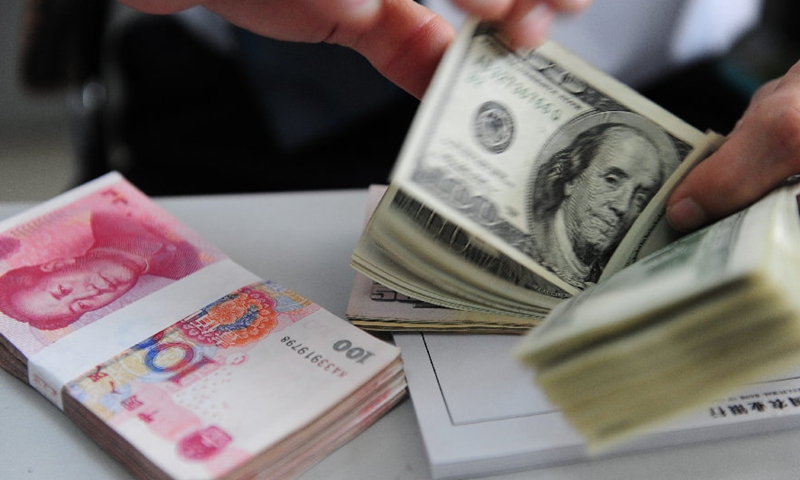
A teller counts U.S. dollar bills at a bank in Qionghai, south China's Hainan Province.Photo:Xinhua
China’s foreign exchange reserves stood at $3.1012 trillion at the end of October, down $13.8 billion from the end of September, the State Administration of Foreign Exchange (SAFE) said on Tuesday. It marked the third consecutive month that the reading has recorded a decline, but the extent of the decline has narrowed from that of September.
The decrease was mainly a result of a stronger US dollar, which has resulted in global asset price depreciation. Analysts and officials pointed out that China's economic recovery has gained momentum. Also, the fundamentals of the Chinese economy have not changed, which is conducive to maintaining the stability of foreign exchange reserves.
“Due to monetary policy expectations for major economies, their macroeconomic data as well as geopolitical factors, the US dollar index rose, which resulted in a price slump of global financial assets… So the forex decrease was the combined effect of currency translation and asset price changes,” SAFE said.
In October, the US dollar index gained 0.49 percent, and the dollar’s exchange rate against the yuan rose 0.64 percent, news website jiemian.com reported on Tuesday.
Analysts added that the depreciation of US treasury bonds, as a result of a global stock market decline that pushed up bond yields, has exerted pressure on the value of global financial assets. Despite that, China’s foreign exchange reserves have still maintained overall stability, and have stayed above the level of $3.1 trillion, which provides a foundation for the stability of the yuan, they noted.
As of the end of October, China had gold reserves of 71.20 million ounces, increasing for the 12th straight month, data from SAFE showed on Tuesday.
